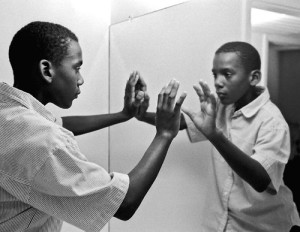This World Storytelling Day, it’s important to understand how stories (from amusing tales to the story of your life) are the pixels that make up your understanding of the world. Stories are not something separate from life – they aren’t fictional pastimes. In fact,they are so prevalent that they’re woven tightly into the tapestry of every person’s life, and in incredibly different ways.
This is perhaps why the youth in South Africa have shown such an ardent love for literacy, and why teachers and psychologists across the country have denounced the one textbook per subject ruling. Stories and fictional books are not just part of life, but the way children and adults learn to understand life as a whole.
Stories as meaning-makers
Often, the public assume that stories and books are a nice, but peripheral extra in the mainstream learning process at school. Fictional books are considered pastimes for the rare few children who show interest in them, and textbooks are where the real learning happens. This couldn’t be further from the truth. Important though textbooks are, learning does not stop once a child closes that book. In fact, what a child learns and understands outside the classroom is what sets the precedent for what kind of student they will be, and what kind of human being they will be.
 “For we dream, remember, anticipate, hope, despair, believe, doubt, plan, revise, criticize, construct, gossip, learn, hate, and love by narrative. In order to really live, we make up stories about ourselves and others, about the personal as well as the social past and future.” – Kathy G. Short
“For we dream, remember, anticipate, hope, despair, believe, doubt, plan, revise, criticize, construct, gossip, learn, hate, and love by narrative. In order to really live, we make up stories about ourselves and others, about the personal as well as the social past and future.” – Kathy G. Short
The way children understand themselves and how they narrate their lives and themselves plays a crucial part in how they come to understand the world as they grow up. Each child’s narrative voice is one that is moulded and changed by the people around them, and the books they read. As Thomas Carlyle says, “what we become depends on what we read after all of the professors have finished with us”. This is even more relevant in a school setting, where children have not yet fully understood the world, and their place in it.
Stories, in and of themselves, can take various shapes and forms. They’re an integral part of any culture, and particularly African culture. Whether written, sung, or told around a fire, these stories impact the way children value and understand their culture and heritage. Engaging with tales, whether they are indeed fictional or whether they’re family stories, gives children the space and comfort to ask questions. Moreover, it gives them the choice to shape their own perceptions about the world.
Stories: A crucial curriculum
Children are inherent storytellers and engage with them naturally and with enjoyment. Allowing them to embrace a love of stories, and allowing them to engage with fiction, both in and outside of the classroom shows children that learning takes place in many forms. They come to experience reading, books and learning as fun and positive activities – not the chore that children often associate with formal education. In addition, reading fiction and enjoying stories is known to cut stress, and makes children more receptive and empathetic.
Studies further show the imprint that reading fiction leaves on the brain –physically changing neural connectivities. Furhermore, a study of 17,000 people from birth indicates that reading for pleasure improves not just literacy, but maths ability too. It was linked to greater intellectual progress, both in vocabulary, spelling and mathematics. It is vital that children enjoy reading - motivation is essential for acquiring literacy skills. Reading for pleasure is more important than either wealth or social class as an indicator of success at school.
This World Storytelling Day, it is important as teachers, parents and other adult role models, to engage with the stories that children tell, and the ones they’re interested in. Often, the stories that children love resemble their lives in some way. They come to school with stories from home, and go back home with stories from school. In their first few years, children attempt to draw conclusions about life, and how to live from the world around them and this process is influenced significantly by how much you allow them to engage with stories. Instead of simply seeing childhood imagination as an amusing personal quirk, valuing the place of stories within communities and within a child’s world affirms and shows them that their voice and their narrative is valid. Moreover, it gives them the space to grow their curiosity and their love for books. Ultimately, reading with your child at home and telling them stories is the easy home-made recipe for both educational success and emotional intelligence.
This article originally appeared in the Cape Times.
